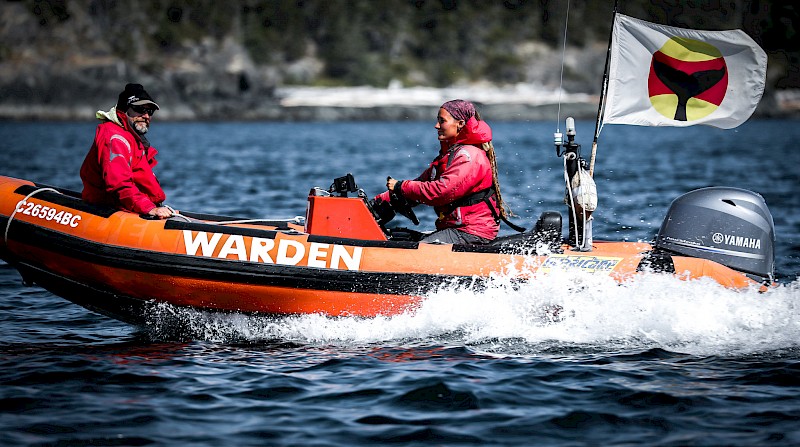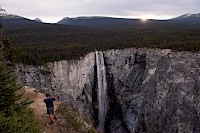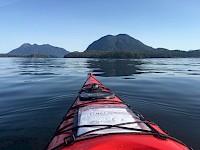BC Parks Foundation
Keeping the Magic Alive at Robson Bight Ecological Reserve
November 15, 2018
Here is a guest blog by our good friends at Cetus Research & Conservation Society, a non-profit dedicated to protecting marine mammals in the wild. It's an example of the kind of work that needs funding to keep the magic of parks alive.
The summer of 2018 marked thirty-six years since the establishment of the Robson Bight (Michael Bigg) Ecological Reserve (RBMBER) by BC Parks. The reserve, named for Michael Bigg, the pioneer of modern killer whale research, was established in 1982 and covers more than 1,700 hectares of water and forest.
RBMBER was selected by BC Parks in particular as an area “to preserve representative and special natural ecosystems, plant and animal species, features and phenomena. Scientific research and educational purposes are the principal uses of ecological reserves.” The protected area status represents BC Parks’ commitment to the preservation of wildlife habitat and distinctive ecosystems. RBMBER was established to protect key habitats for killer whales and prevent whale harassment while using these habitats, specifically creating a sanctuary for the northern resident killer whales.These whales rely on this region to forage for and feed on salmon, and to mate, socialize and engage in complex social activities such as beach rubbing, a behaviour which consists of the whales rubbing their bodies on smooth pebble beaches. RBMBER also offers unique opportunities to research and observe whales and serves to protect the pristine estuary, shoreline, and forested slopes.
The Robson Bight Marine Warden Program began in 1987 and operates on contract with BC Parks. Cetus Research & Conservation Society, a non-profit dedicated to protecting marine mammals in the wild, has operated the program since 2005.
Wardens work on the water to help boats avoid the paths of whales and keep boats out of the Reserve. Cetus also operates a research station across from the Reserve where, among other things, researchers share the history of Robson Bight as well as the Marine Mammal Regulations, which came into affect July 2018, with visitors. Since 2010, Cetus has had a partnership with the Yukusam Heritage Society. This partnership reflects shared concerns and goals regarding marine wildlife of the region, which includes ensuring disturbances to whales in the vicinity of RBMBER are reduced.
These regulations state that vessels need to stay at least 200 metres away from all killer whales in Pacific waters and keep out of their intended path to ensure groups are not separated. As well, vessels must keep a minimum distance of 100m from other marine mammals. Additionally the “Be Whale Wise” guidelines provide suggestions on minimizing disturbances and operating boats appropriately around these animals. Commercial whale-watching operators should be aware of the regulations/guidelines, but many private boaters and kayakers are not. Cetus research indicates the majority of harmful incidents between vessels and whales arise from pleasure boaters and kayakers. The Warden Program seeks to mitigate the harm caused by these incidents.
Robson Bight Ecological Reserve and the surrounding forests and waters of Johnstone Strait are a jewel, not just of B.C., but of the entire natural world. People come from all over the planet to witness the extraordinary wildlife and wilderness in the region. But that very wildlife and wilderness should not suffer from the attention. Education, awareness and vigilance can contribute to the health of these spectacular animals and their future.
Love this? For more inspiring stories about conservation wins, community efforts, and ways you can help protect nature, subscribe to our newsletter today.
Similar Stories
-
 July 16, 2019
July 16, 2019
Natural Phenomena: 5 Things You May Not Know About BC's Parks
-
 April 10, 2024
April 10, 2024
Become A Discover Parks Ambassador
-
 January 12, 2021
January 12, 2021
Enhancing Experiences and Reducing Impacts
“Every plant, animal or tree that dies creates a better foundation for other plants to grow and animals to thrive. As such, let’s accept and be grateful for the dead ends, plans or projects that we lose: because these create a stronger and more enlightened foundation for us to build something better for our future.
”